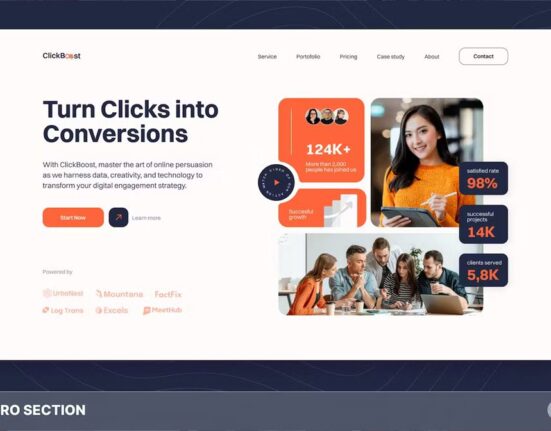Ever walked into a dealership, found the perfect car, but then had a bank slam the brakes on your loan application? Happens every day. Maybe your credit score dipped after a tough year, maybe you’re self-employed with income that doesn’t fit neatly into a W-2, or maybe you just don’t want to spend weeks dealing with a bank’s red tape.
That’s where in house financing comes in. Think of it as skipping the middleman. Instead of begging a bank for approval, you deal directly with the seller — whether it’s a car lot, a furniture store, or even a homeowner.
This isn’t some fringe option either. It’s become a lifeline for people who need quick, flexible financing without getting chewed up by traditional lenders. In this guide, we’ll break it all down: what in-house financing actually is, how it works, what it takes to qualify, and whether it’s the right move for you.
What Does In-House Financing Mean?
At its core, in-house financing is exactly what it sounds like: the seller becomes the lender. No bank, no credit union, no third-party middleman.
Example: You’re eyeing a used car worth $15,000, but you can’t pay cash. Instead of sending you to a bank for a loan, the dealership says, “We’ll finance you right here.” You make your monthly payments directly to them, and they hold the title until it’s paid off.
What makes this setup different from a bank loan? Speed and flexibility. Banks love paperwork and endless verification. A dealership or store with in-house financing usually wants one thing: to close the sale. That means fewer hoops and faster approval.
How Does In-House Financing Work?
The process is a lot simpler than traditional lending. Here’s how it usually goes:
- Quick Application
Instead of a 10-page form, most in-house financing applications are short. They’ll ask about income, job status, and basic credit info.
- Same-Day Approval
Forget waiting for some underwriter across the country. The finance manager or store owner reviews your info and decides on the spot.
- Negotiating the Terms
This is where you can push a little. Down payment, interest rates, loan length, and monthly payments are often negotiable — something banks rarely allow.
- Paperwork and Closing
Once terms are agreed on, you sign the contract. Expect proof of income, ID, insurance (for cars), and maybe a utility bill. Nothing like the mountain of docs a bank demands.
- Payment Setup
You’ll pay the seller directly — in person, online, or through automatic payments. Some places even let you choose a weekly, bi-weekly, or monthly schedule.
The whole thing can happen in a single afternoon. Try doing that at a bank.
Where You’ll See In-House Financing
Car Dealerships
This is the classic example. In-house financing car lots (sometimes called Buy Here, Pay Here dealerships) specialize in helping buyers with bad or no credit. They care more about your ability to pay now than your past mistakes.
Many of these dealerships even report your payments to credit bureaus, which means if you pay on time, your credit score can start climbing again.
Real Estate (Seller Financing)
In real estate, in house financing often shows up as owner financing. A homeowner sells their house and acts as the bank, letting the buyer make payments directly.
This can be a win-win: the seller gets a steady income, and the buyer gets a home without the nightmare of strict mortgage rules. It’s especially handy for unique properties or buyers with irregular income.
Retail and Business Purchases
Furniture stores, appliance outlets, and even equipment dealers use in-house financing to close sales. Businesses know that when they offer payment plans, customers are more likely to buy higher-ticket items.
For small businesses, this can be a lifesaver. Equipment dealers, for example, understand cash flow cycles better than banks. They’ll often structure repayment terms that fit the industry, not just a cookie-cutter formula.
Benefits of In-House Financing
So why do people go this route? Here are the big wins:
- Fast approval. Some deals close the same day.
- Flexible terms. Down payments, rates, and payment schedules are often negotiable.
- Credit forgiveness. Bad credit? Thin credit file? Many in-house lenders don’t treat it as a dealbreaker.
- Relationship-driven. You’re dealing with people who actually want to make the sale and see you succeed.
- Credit building. If they report to credit bureaus, on-time payments can rebuild your score.
In-House Financing Requirements
It’s not a free-for-all. Sellers still protect themselves. Typical requirements include:
- Proof of income. Pay stubs, bank statements, or self-employment docs.
- Down payment. Usually 10–20% for cars, more for real estate.
- Proof of residence. A lease or utility bill.
- Employment stability. Banks want years on the job. In-house lenders are often okay with less, but steady work helps.
- Credit check. Some skip it, others run a soft pull. It’s usually less strict than banks.
In-House Financing vs. Bank Financing
Here’s the side-by-side:
- Interest Rates: Banks often win here if your credit is good. In-house lenders may charge higher rates, but they’re also open to negotiating.
- Speed: In-house blows banks out of the water. Same-day vs. weeks.
- Credit Requirements: Banks want clean credit histories. In-house lenders focus on whether you can pay right now.
- Flexibility: Banks have fixed loan terms. In-house financing can adapt to your budget and situation.
- Personal Touch: Banks = faceless institution. In-house = people invested in your success.
How to Get Approved
Want to boost your chances? Here’s the playbook:
- Bring paperwork. Pay stubs, proof of residence, ID — show you’re organized.
- Be upfront. If you’ve got bad credit, explain why. Sellers often care more about honesty than a score.
- Negotiate smart. Don’t take the first offer. Push for a fair down payment and realistic monthly terms.
- Ask about credit reporting. If you want to rebuild credit, confirm they report to bureaus.
FAQs
Q. Does in-house financing check credit?
Yes, most in-house financing dealerships will run a credit check — but unlike traditional banks, it’s not usually a hard stop. They’re often more flexible, weighing your income, employment history, and stability just as heavily as your score. That’s why people with fair or bad credit still get approved.
Q. Do in-house financing payments get reported to credit bureaus?
Sometimes they do, sometimes they don’t. It depends on the dealership’s policy. Always ask upfront whether your payments will be reported to major credit bureaus. If they are, on-time payments can help rebuild your credit faster. If not, it still gets you a car, but it won’t improve your score.
Q. What happens if I miss payments on in-house financing?
Just like with a bank loan, missed payments can lead to repossession or collection. The difference is that many in-house financing dealerships are more willing to work with you before it gets that far. They may restructure payments, extend deadlines, or create a catch-up plan if you communicate early.
Q. Can I refinance an in-house financing loan later?
Yes. Many borrowers use in-house financing as a short-term solution to get approved quickly. Once their credit improves or they build a steady payment history, they often refinance with a traditional bank or credit union to secure a lower interest rate and better terms.
Final Takeaway
In-house financing isn’t just a last resort. It’s a real alternative for people who value speed, flexibility, and a more personal lending experience. Whether it’s a used car, a starter home, or new equipment for your business, cutting out the middleman can sometimes be the smartest financial move.
At the end of the day, it comes down to this: If traditional lenders have shut the door on you, in-house financing might just be the window you climb through.
Visit: Pure Magazine








